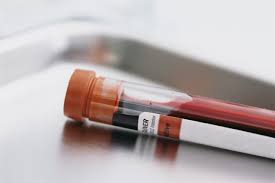In the Blood: Pros and Cons of Los Angeles DUI Blood Tests
We’re going to look north today, to Idaho, for insight into the often misunderstood arena of Los Angeles DUI blood tests. In an Idaho Supreme Court decision on December 3, 2014, a judge ruled that police must get a warrant before performing a DUI blood test if a suspect refuses to give blood or perform other sobriety tests.
Former Idaho Supreme Court decisions have stated that a warrantless blood law is permissible under an “implied consent statute.” However, 1st District Court Judge Benjamin R. Simpson reversed these decisions based on two local cases in which men suspected of DUI had their blood drawn to test for alcohol under protest.
Cases such as the McNeely case of 2013 — as well as Judge Simpson’s two most recent decisions — cite the fact that “the natural metabolization of alcohol in the bloodstream does not alone present an urgent need [for a blood draw],” according to the Spokesman-Review. However, the attorneys at Kraut Law Group Criminal & DUI Lawyers, Inc. want readers to know there are pros and cons to a blood draw, consensual or otherwise.
Pros of a Blood Draw
A blood draw is the most specific and accurate DUI test. If a driver believes he or she was under the legal alcohol limit, a blood test may unequivocally prove it. Blood draws are also less subjective than traditional sobriety tests, such as walking in a straight line, and they can result in fewer misunderstandings between the officer and the driver. For example, in a traditional sobriety test, an officer might think a physically disabled driver was intoxicated because of stumbling related to the disability.
Cons of a Blood Draw
Refusal to submit to a blood draw may result in automatic license suspension, particularly in states where a warrantless blood draw is considered permissible. Failure to cooperate with a blood draw may also make an arresting officer think the driver is belligerent or dangerous, thus giving him or her more reason to make an arrest.
Can a Blood Draw Decision Be Fought?
Yes. Blood tests can be compromised in DUI cases or otherwise shown to be inadmissible as evidence. The collection and storage of blood can easily influence the amount of alcohol determined to be present in a sample. For example, if the officiating nurse cannot find a vein and must prick the driver several times, the blood sample could be compromised. This kind of compromise can also happen if blood is stored at the wrong temperature or in a carelessly sealed container. Faulty forensic equipment can also result in compromised draws and ultimately in wrongful convictions. Drivers who suspect their blood draws were compromised can and should fight the conviction to avoid unjust consequences.
Do you or a family member need insight from a qualified Los Angeles DUI attorney? Contact Michael Kraut of the Kraut Law Group Criminal & DUI Lawyers, Inc. to set up your free consultation.
Have you been arrested for a DUI in Los Angeles? If so, please contact DUI defense attorney Michael Kraut at (323) 464-6453 or online. Our building is located at 6255 Sunset Boulevard, Suite 1520, Los Angeles, California 90028.
 Los Angeles DUI Attorney Blog
Los Angeles DUI Attorney Blog

